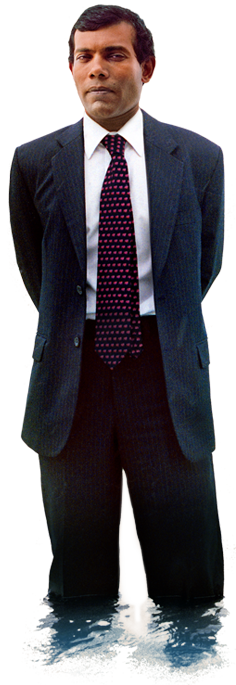CAST
CAST LIST
(IN ORDER OF APPEARANCE)
MOHAMED NASHEED
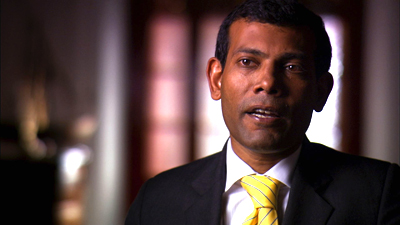
PRESIDENT OF THE REPUBLIC OF MALDIVES
On 7 February 2012, democratic progress in the Maldives suffered a major setback when Nasheed was forced to resign the presidency under the threat of violence in a coup d'etat perpetrated by an alliance between security forces loyal to the former dictator Maumoon Abdul Gayoom and minority Islamist activists.
Nasheed was born in Male, Republic of Maldives, on 17 May 1967. He attended Majeediyya School, Male between 1971-1981, the Overseas School in Colombo in 1981, and The Dauntsey's School in England between 1982-1984. Nasheed remained in the UK for his higher education, graduating from Liverpool University in 1989 with a Bachelor of Arts in Maritime Studies.
Nasheed's early political career was dominated by his non-violent struggle for democracy in the Maldives. In 1990, he helped establish Sangu, a political magazine that scrutinized the ruling political class. Within its first year, the government banned the publication, and Nasheed was arrested and jailed for the first of many times. In 1991, Amnesty International declared Nasheed a 'prisoner of conscience'.
In 1999, Nasheed was elected MP for Male but was stripped of his seat soon afterwards and jailed once again. He spent 18 months in jail, including long periods in solitary confinement.
On 20 September 2003, the Maldives was rocked by political unrest when hundreds of demonstrators took to the streets of Male after hearing of the murder of Evan Naseem, an imprisoned youth who was tortured to death by Maafushi Jail guards. Sensing an underlying current for change, Nasheed fled the Maldives and, on 10 November 2004, co-founded the country's first opposition party, the Maldivian Democratic Party (MDP), in exile in Sri Lanka.
In 2004, Nasheed was granted refugee status by the British government and granted indefinite leave to remain in the UK. After spending 18 months in self-imposed exile, Nasheed returned to the Maldives on 30 April 2005 to establish the MDP in the Maldives, defying a government edict banning political parties. The government overturned its ban on political parties on 2 June 2005, and Nasheed was elected Chairperson of the MDP on 20 December 2005.
Between 2005-2008, Nasheed initiated a campaign of non-violent civil disobedience in the Maldives, to pressure the government to speed up the implementation of democratic reforms. He was arrested in August 2005 during a non-violent protest and accused of 'terrorism,' a charge that the government later dropped.
In April 2008, Nasheed won the MDP primaries to become the MDP's candidate for President. Presidential Candidate in April 2008, and in October of 2008, he won the country's first democratic, multi-party election, beating Maumoon Abdul Gayoom and ending his thirty year rule.
President Nasheed won the 2009 Anna Lindh Prize, in recognition of his work promoting human rights, democracy and environmental protection. In September 2009, Time Magazine declared President Nasheed a 'Hero of the Environment'. In April 2010, the United Nations presented with its 'Champions of the Earth' environment award. In August 2010, Newsweek named President Nasheed in its list of 'World's Ten Best Leaders'.
AHMED NASEEM
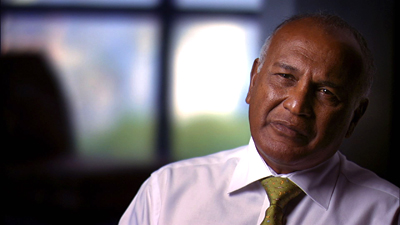
MINISTER OF STATE FOR FOREIGN AFFAIRS
Ahmed Naseem was born in 1948 and educated in Sri Lanka at HSC, Wesley College. He obtained diplomas in Diplomatic Studies in Australia and Conflict Resolution and Arbitration in Singapore.
Minister Naseem began his government service in 1967 in the administration of the Maldives' first president, Amir Ibrahim Nasim, serving first as a Secretary at the Foreign Office and later as a Secretary in the Ministry of Foreign Affairs and as Deputy Minister in the Ministry of Fisheries. Naseem represented the Maldives at the United Nations and was posted as a First Secretary in the Maldives Embassy in Washington DC. From 1998 to 2005, Naseem was the Director General of Investments at the government's Foreign Investment Services Bureau. He was a key figure in the early development of the Maldives tourism industry, introducing up-market tourism to Maldives with the development and opening of the nation's first luxury resort.
Naseem's life took a dark turn in 1980 when, a year and a half into Maumoon Abdul Gayoom's first term as president, the government arrested and imprisoned him for five years. During this period, he was held in solitary confinement, tortured, and eventually banished to a remote, sparsely populated island where he lived as a subsistence fisherman to survive. He was released in 1986 with the condition that he return to government service under the "care and supervision" of President Gayoom's close associates.
In 2003, Naseem resigned from the Gayoom government and moved to Sri Lanka to join the fledgling Maldivian Democratic Party (MDP) in exile. Based in Colombo, he served as the party's representative to the United Kingdom, European Union and the United States of America until Mohamed Nasheed's election victory in 2008.
Naseem was appointed as the Minister of State for Foreign Affairs on 13 November 2008. After serving as the State Minister for more than two years, Naseem was appointed as the Minister of Foreign Affairs on 11 April 2011.
MOHAMED ASLAM
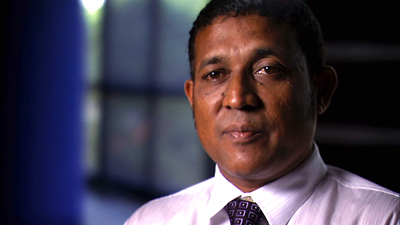
MINISTER OF HOUSING & ENVIRONMENT
Mohamed Aslam served in the Government of Maldives for over fifteen years, holding senior executive positions in the Ministry of Construction and Public Works. In 2005, Aslam left his civil service career and joined the country's first opposition party, the Maldivian Democratic Party (MDP). He was actively involved in Party efforts to speed up democratic reforms in the Maldives.
Following the election of President Mohamed Nasheed, Aslam was appointed as the Minister of Housing, Transport and Environment in November 2008. His portfolio was later changed to Minister of Housing and Environment.
Aslam holds a Masters Degree in Geography from the University of Auckland, New Zealand and a Bachelor of Science (with Honors) in Geological Oceanography from the University of Wales, United Kingdom.
AMINATH SHAUNA
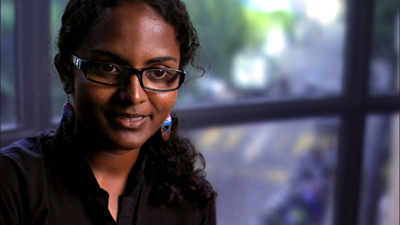
DEPUTY UNDERSECRETARY, PRESIDENT'S OFFICE
As Deputy Undersecretary in President Nasheed's policy office, Aminath Shauna managed all administration policy on climate change. Shauna was a point person in the nation's effort to fulfill the country's pledge to become carbon neutral by 2020, and in October 2009, she was the lead coordinator of President Nasheed's famous Underwater Cabinet Meeting.
Shauna was born in Hulhudhoo island of Addu Atoll, the Maldives' southern-most atoll in the Indian Ocean, and at the age of seven, she moved to the capital of Male to enroll in school. In 2002, she won a scholarship to study at the Lester B. Pearson United World College of the Pacific, Canada, where she received an International Baccalaureate diploma. In 2008, after receiving a degree in Political Science, Economics and Environmental Science from Westminster College in Fulton, Missouri, Shauna returned to the Maldives to work at Minivan News, the first independent English-language newspaper in the Maldives, where she reported on the nation's first democratic elections.
After President Nasheed's inauguration in November 2008, Shauna joined the new president's administration to work in the Policy Office to coordinate all climate change and energy related work within the office. Between 2009 and the February 2012 coup, she was the lead representative from the Maldives to the UNFCCC climate negotiations. Recently, she was elected president of the Youth Wing of the Maldivian Democratic Party.
MOHAMED ZUHAIR
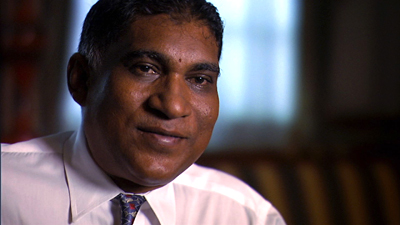
PRESS SECRETARY, PRESIDENT'S OFFICE
LAILA ALI
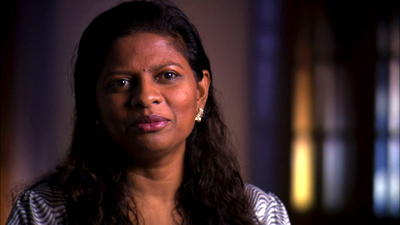
WIFE OF PRESIDENT MOHAMED NASHEED
AHMED MOOSA
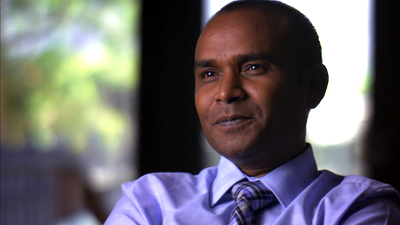
PRESIDENT'S ENVOY FOR SCIENCE & TECHNOLOGY
Ahmed Moosa was a pro-democracy activist who worked to end of the thirty-year authoritarian rule of Maldives leader Maumoon Abdul Gayoom. In October 2003, following the murder of jailed youth Evan Naseem and the subsequent civil unrest in the capital city of the Maldives, Moosa publicly criticized the Gayoom regime in a television interview given to the BBC. Fearing arrest, he left the Maldives for the United Kingdom, where he became a founding member of the Maldivian Democratic Party (MDP). In 2004, he launched the Dhivehi Observer, a news website that circumvented the highly censored media environment under Gayoom and played a key role in exposing human rights abuses committed by the regime.
Moosa holds an Honours degree in Mechanical Engineering from the University of Glasgow (UK) and a Masters of Philosophy in Engineering degree in Metallurgy and Materials from the University of Birmingham. In 2009, Moosa was appointed as President's Envoy for Science & Technology.
PAUL ROBERTS
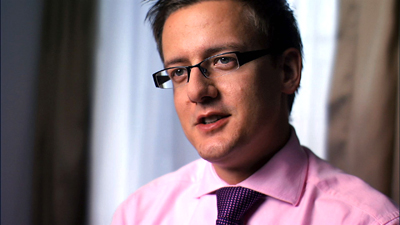
ADVISOR ON INT'L MEDIA & COMM., PRESIDENT'S OFFICE
Paul Roberts was responsible for the Nasheed government's interaction with the international press. He is a communications expert specializing in strategy, framing and messaging, and he has a particular interest in energy, environment and foreign policy issues. Prior to joining the government, Roberts assisted the fledgling Maldivian democracy movement and helped found the Maldives' first independent news outlet, Minivannews.com. Roberts has a BA in Politics and an MA in International Relations from the University of Warwick.
DR. MOHAMED WAHEED
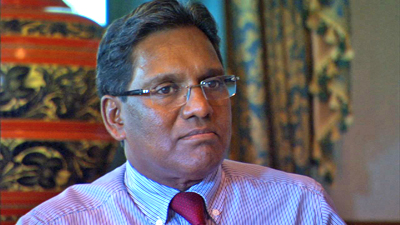
VICE PRESIDENT OF THE REPUBLIC OF MALDIVES
Prior to the coup, Dr. Mohamed Waheed Hassan was the Vice President of the Maldives, having been sworn into office on November 11, 2008 after the first free, multi-party election in the country. For many years prior, he served in various capacities at the United Nations and UNICEF. In June 2008, Dr. Waheed returned to the Maldives and formed his own political party, Gaumee Itthihaad (GIP), and soon after was chosen as the Party's candidate for president. Prior to the election, the GIP formed an alliance with the Maldivian Democratic Party (MDP), with MDP leader Mohamed Nasheed standing as the presidential candidate and Dr. Waheed standing as vice presidential candidate in the October 2008 election. Their victory ended the thirty-year rule of President Maumoon Abdul Gayoom.
Dr. Waheed holds a Masters degree in Political Science and a PhD in International Development Education from Stanford University.
MARK LYNAS
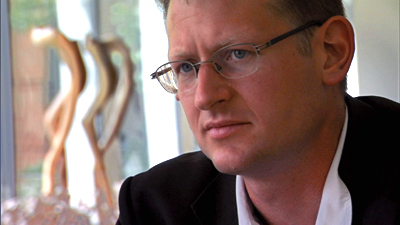
PRESIDENT'S ADVISOR ON CLIMATE CHANGE
In November 2009, he was appointed advisor on climate change to the President Mohamed Nasheed of the Maldives, and he was involved in the Maldives' effort to be the first carbon neutral country on Earth by 2020.
Lynas advised President Nasheed until 7 February 2012, when Nasheed was forced to resign the presidency under the threat of violence in a coup d'etat perpetrated by an alliance between security forces loyal to the former dictator Maumoon Abdul Gayoom and minority Islamist activists.
MOHAMED ZIYAD
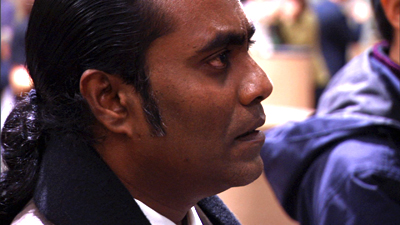
EXEC. SERVICES SECRETARY, PRESIDENT'S OFFICE
DR. AHMED SHAHEED
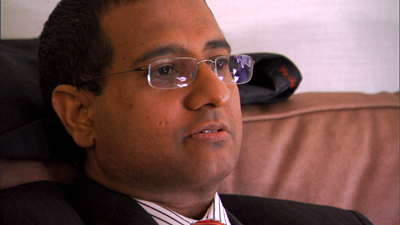
MINISTER OF FOREIGN AFFAIRS
After Gayoom was defeated in the October 2008 presidential election, Mohamed Nasheed reappointed Shaheed as Foreign Minister in November 2008.
In May 2009, the Washington-based think-tank, Centre for the Study of Islam and Democracy conferred their annual Muslim Democrat of the Year Award to Shaheed. The citation for the award read that it was being given to Shaheed in recognition of his "role in building democracy and preserving it in the face of hardship, for promoting tolerance and harmony, and for opening a window into a century of reason, freedom, human rights and democracy in the Maldives and in South Asia." In June 2011, he was elected as Special Rapporteur on the Human Rights Situation in Iran by the Human Rights Council of the United Nations.
Shaheed was educated at the University of Aberystwyth, United Kingdom before he obtained his PhD in International Relations at the University of Queensland, Australia.
ABDUL GHAFOOR MOHAMED
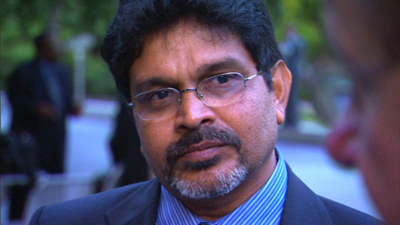
AMBASSADOR TO THE UNITED NATIONS
Abdul Ghafoor Mohamed was appointed Maldives Ambassador to the United Nations on September 11, 2009. He was Permanent Representative to the United Nations Office in Geneva from December 2007 to January 2009, and served concurrently as Permanent Representative to the World Trade Organization from September 2008.
A career foreign service officer, Ghafoor Mohamed has held various positions in the Maldives Foreign Ministry, including Executive Director in 2007; Assistant Executive Director in 2005; Director General, Foreign Relations, between 1994 and 2000; Deputy Director, Foreign Relations, in 1989; and Programme Officer in 1983. His overseas service includes postings as Deputy High Commissioner in Malaysia (2006) and Sri Lanka (2005); Counsellor in Sri Lanka (2003); and Director (Maldives), at the South Asian Association for Regional Cooperation (SAARC) Secretariat in Kathmandu, Nepal (1997 to 2000).
Ghafoor Mohamed has a master's degree in international relations from the Fletcher School of Law and Diplomacy, Tufts University, in Massachusetts, and a bachelor's degree from the University of Tasmania in Australia.
IBRAHIM HUSSAIN ZAKI
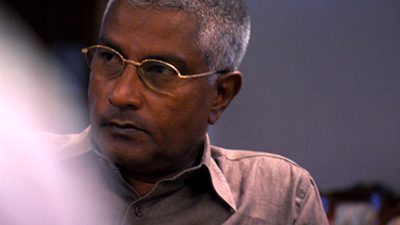
SPECIAL ENVOY TO THE PRESIDENT
Beginning in 1994, Zaki was elected to the Parliament for two consecutive five-year terms. In 2004, he was arrested and incarcerated in solitary confinement for almost 2 months as a consequence of his participation in a peaceful demonstration against the human right abuses committed under the Gayoom regime. In November 2006, as the acting President of the opposition Maldivian Democratic Party, Zaki was arrested again for "inciting enmity against the lawful government."
Following his election in 2008, Mohamed Nasheed appointed Zaki to be the special envoy to the President of the Maldives. Zaki served in that capacity until 7 February 2012, when President Mohamed Nasheed was forced to resign the presidency under the threat of violence in a coup d'etat perpetrated by an alliance between security forces loyal to the former dictator Maumoon Abdul Gayoom and minority Islamist activists.
IRUTHISHAM ADAM
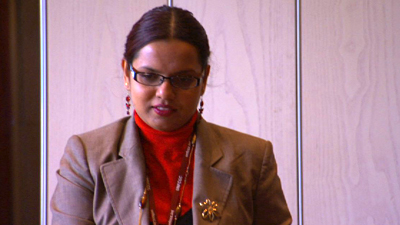
AMBASSADOR TO THE UN OFFICES AT GENEVA
Adam has led various divisions within the Ministry of Foreign Affairs of the Maldives and has represented her island country in relevant UN meetings, the Alliance of Small Island States (AOSIS) and the World Trade Organization. She was a lead negotiator in President Nasheed's delegation at the UNFCCC, Copenhagen in November 2009, and she participated in the UN General Assembly Summit on Climate Change in New York in September 2009.
In Geneva, Adam has actively engaged in the UN Human Rights Council (UNHRC) to draw attention to the linkages between human rights, climate change and the environment.
THE MALDIVES
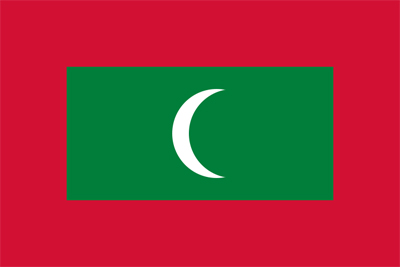
- An archipelago of approximately 1,200 coral islands, of which 200 are inhabited. The number rises to 2,000 when including all land forms like sandbanks and reefs that are exposed at low tide.
- Lowest country on earth: average elevation is 1.5 meters above sea level; highest point is 2.5 meters;
80% of the land is less than 1 meter above sea level.
- The low level of the Maldives makes it very sensitive to sea level rise, with some scientists fearing that it could be underwater by 2050 or 2100.
- 400 miles of coastline
- Population: nearly 400,000, a quarter of whom live in the capital island, Male.
- A former British Protectorate that gained full independence in 1965. The Republic of Maldives has been led by three presidents since independence:
Amir Ibrahim Nasir (1968 - 1978)
Maumoon Abdul Gayoom (1978 - 2008)
Mohamed Nasheed (2008 - present)



